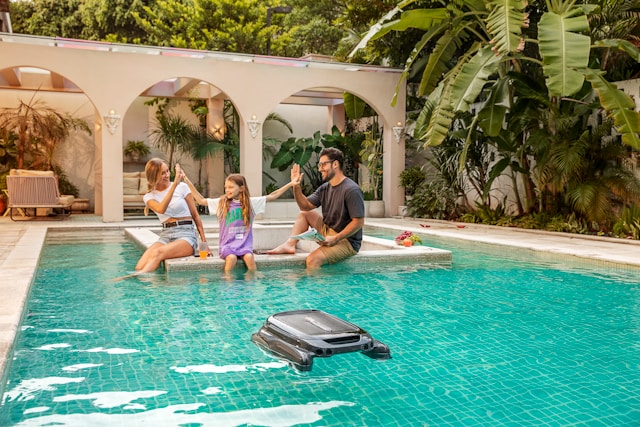- Change theme
Do Cordless Pool Vacuums Work as Good as Corded?

As technology advances, the trend of wanting portable and cordless vacuums is made as such.
01:41 19 December 2024
Many pool owners ask if a cordless pool vacuum can compete with the performance of a corded pool cleaner when selecting the best pool cleaner. As technology advances, the trend of wanting portable and cordless vacuums is made as such. But how do they stack up side by side in the efficiency, power, and usability?
The Benefits of Cordless Pool Vacuums
The cordless pool vacuums have numerous advantages that make them a modern-day solution for pool cleaning:
Mobility and Convenience
A cordless vacuum lets you clean your pool without concern over tangling wires or requiring power nearby. They’re particularly helpful for larger pools or spaces where access to electricity is more limited.
Ease of Use
Cordless vacuums are typically so light, they’re easy to move around. They’re ideal for quick clean-ups and can get into hard-to-reach areas in your pool.
Modern Features
“There are a number of cordless vacuums that are equipped with smart navigation systems, such as the Beatbot AquaSense Pro, which moves autonomously and smartly without any human intervention.
Downsides of Cordless Pool Vacuums
While they have some advantages, cordless vacuums have limitations relative to their corded counterparts:
Battery Life
Cordless vacuums run on battery power, which usually lasts between 60 and 90 minutes. This may be enough for smaller pools, but not necessarily for larger ones. In contrast, corded vacuum cleaners for pools are able to run as long as they’re plugged in, to inifinitum.
Power and Suction
Corded vacuums usually feature stronger suction power, making them more efficient at sucking out heavy debris or stirring dense pools. Although power performance is finally catching up with cordless models like the Beatbot iSkim Ultra, stubborn dirt still doesn’t stand a chance against the latter.
Maintenance Costs
Cordless models require periodic battery replacement, which contributes to their long-term maintenance costs.
When Should You Pick A Corded Database Vacuum?
Corded vacuums are ideal if:
You have a massive pool that will need long hours of cleaning time.
Your pool is exposed to heavier debris like leaves, sand, or dirt, which requires more suction.
You want a cleaning process that you can rely on and not have to worry about running out of battery.
So, typical robotic pool cleaners are usually corded for them to work properly, thus, they are a better option for heavy-duty cleaning.
what does that refer to?
Cordless vacuums, like the Beatbot AquaSense and Beatbot AquaSense Pro, are the new wave of pool cleaning technology. As battery technology improves, the performance gap between these machines and corded models should close. Numerous cordless models already come equipped with features such as self-charging and programmable cleaning cycles, which are growing more appealing to pool owners.
How to Choose the Best Pool Cleaner for Your Needs
While you can go either corded or cordless, your selection should be based on the size, type and cleaning requirements of your pool. For smaller pools or convenient options, cordless vacuums can do the trick. But for large pools that see a lot of cleaning, corded vacuums are still a reliable option.
Conclusion
Corded vs Cordless Pool Vacuum Pros and ConsEvery type of pool vacuum has its pros and cons; the decision you make is based on your need. For example, if you value the convenience and portability of a cordless vacuum cleaner, you might consider a model like the Beatbot AquaSense Pro. But in terms of pure power and reliability, a corded pool cleaner is the way to go. Regardless of the type, investing in a high-quality cleaner guarantees a sparkling pool and more enjoyment time!
